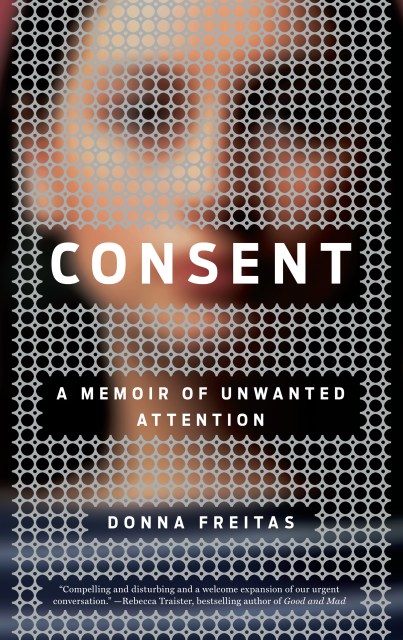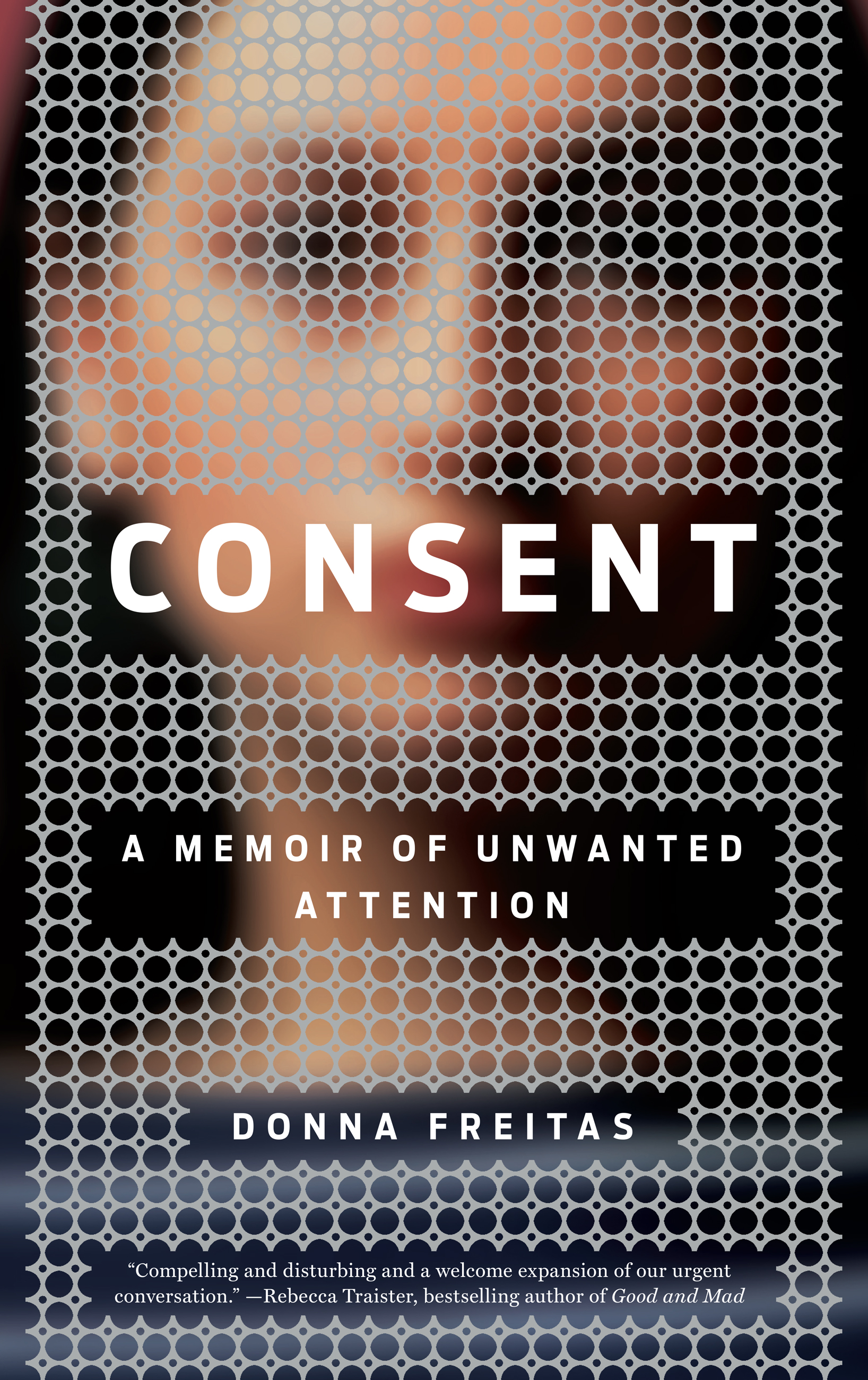By clicking “Accept,” you agree to the use of cookies and similar technologies on your device as set forth in our Cookie Policy and our Privacy Policy. Please note that certain cookies are essential for this website to function properly and do not require user consent to be deployed.
Consent
A Memoir of Unwanted Attention
Contributors
Formats and Prices
- On Sale
- Aug 13, 2019
- Page Count
- 336 pages
- Publisher
- Little, Brown and Company
- ISBN-13
- 9780316450515
Price
$14.99Price
$19.99 CADFormat
Format:
- ebook $14.99 $19.99 CAD
- Hardcover $38.00 $48.00 CAD
- Audiobook Download (Unabridged)
This item is a preorder. Your payment method will be charged immediately, and the product is expected to ship on or around August 13, 2019. This date is subject to change due to shipping delays beyond our control.
Buy from Other Retailers:
In this “compelling and disturbing” true story, a young woman’s toxic mentor develops a dark, stalking obsession that disrupts her career — and her peace of mind. (Rebecca Traister,New York Times bestselling author of Good and Mad)
Donna Freitas has lived two lives. In one life, she is a well-published author and respected scholar who has traveled around the country speaking about Title IX, consent, religion, and sex on college campuses. In the other, she is a victim, a woman who suffered and suffers still because she was stalked by her graduate professor for more than two years.
As a doctoral candidate, Freitas loved asking big questions, challenging established theories and sinking her teeth into sacred texts. She felt at home in the library, and safe in the book-lined offices of scholars whom she admired. But during her first year, one particular scholar became obsessed with Freitas’ academic enthusiasm. He filled her student mailbox with letters and articles. He lurked on the sidewalk outside her apartment. He called daily and left nagging voicemails. He befriended her mother, and made himself comfortable in her family’s home. He wouldn’t go away. While his attraction was not overtly sexual, it was undeniably inappropriate, and most importantly–unwanted.
In Consent: A Memoir of Unwanted Attention, Donna Freitas delivers a forensic examination of the years she spent stalked by her professor, and uses her nightmarish experience to examine the ways in which we stigmatize, debate, and attempt to understand consent today.
Donna Freitas has lived two lives. In one life, she is a well-published author and respected scholar who has traveled around the country speaking about Title IX, consent, religion, and sex on college campuses. In the other, she is a victim, a woman who suffered and suffers still because she was stalked by her graduate professor for more than two years.
As a doctoral candidate, Freitas loved asking big questions, challenging established theories and sinking her teeth into sacred texts. She felt at home in the library, and safe in the book-lined offices of scholars whom she admired. But during her first year, one particular scholar became obsessed with Freitas’ academic enthusiasm. He filled her student mailbox with letters and articles. He lurked on the sidewalk outside her apartment. He called daily and left nagging voicemails. He befriended her mother, and made himself comfortable in her family’s home. He wouldn’t go away. While his attraction was not overtly sexual, it was undeniably inappropriate, and most importantly–unwanted.
In Consent: A Memoir of Unwanted Attention, Donna Freitas delivers a forensic examination of the years she spent stalked by her professor, and uses her nightmarish experience to examine the ways in which we stigmatize, debate, and attempt to understand consent today.
-
"Freitas recounts with great thoughtfulness how her perception of the power differential between [herself and her stalker], as well as her faith in the religious and educational institutions she'd grown up with, lulled her into susceptibility and disbelief."New York Times Book Review
-
"Donna Freitas combs through the emotional knots that form when a mentor's attention becomes inappropriate and manipulative. With sharp attention, she separates the many strands of consent one by one. A riveting, significant examination of the forces that push a student into silence about unwanted attention."Idra Novey, award-winning author of Those Who Knew and Ways to Disappear
-
"A meticulously recounted memoir of building dread, that pushes our understanding of power and its abuses. Freitas's story complicates and illuminates our ideas about harassment and harm, showing how it doesn't just begin and end within the confines of physical contact: it infiltrates our own heads, is enabled by the very structures that are supposed to be our recourse from it but too often work to cover it up."Rebecca Traister, New York Times bestselling author of Good and Mad
-
"In Consent, Donna Freitas writes an experience many women know all too well: Being stalked. What makes this book is uniquely powerful is Freitas's particular expertise in this area: She is a scholar and speaker on issues of consent, religion, Title IX, and sex on college campuses."Bustle
-
"A groundbreaking resource for educators, administrators, students, and survivors, the book explores an issue many would prefer to ignore.A potent memoir of stalking with special resonance in the era of #MeToo.Kirkus, starred review
-
"Any reader interested in current discussionson consent and its importance should pick up this heartfelt and harrowing book."Library Journal, starred review
-
"Freitas is incredibly honest and doesn't shy away from her feelings that she is in some way at fault. She rounds out her memories with details of her family and friends as well as more studious synthesis, and calls for campus reform, adding heft to an already important story."Booklist
-
"Freitas has mastered the telling of her story--despite repeated attempts by others to keep her from doing so--and has mastered it in such a way that its telling sheds light on a larger societal issue. . . . A difficult but important read about one woman's survival of stalking by her professor, and the role of consent in any relationship."Shelf Awareness
-
"Freitas' delicate study of her torment and its devastating effects, which raises thorny, meaningful questions about how to define consent, is an important testament for the #MeToo era."Publisher's Weekly
-
"Consent is an affecting memoir."The Wall Street Journal
-
"Freitas recalls this time in herself with stark clarity, honesty, and a vulnerability that bleeds onto the page."Bitch Media
Newsletter Signup
By clicking ‘Sign Up,’ I acknowledge that I have read and agree to Hachette Book Group’s Privacy Policy and Terms of Use







